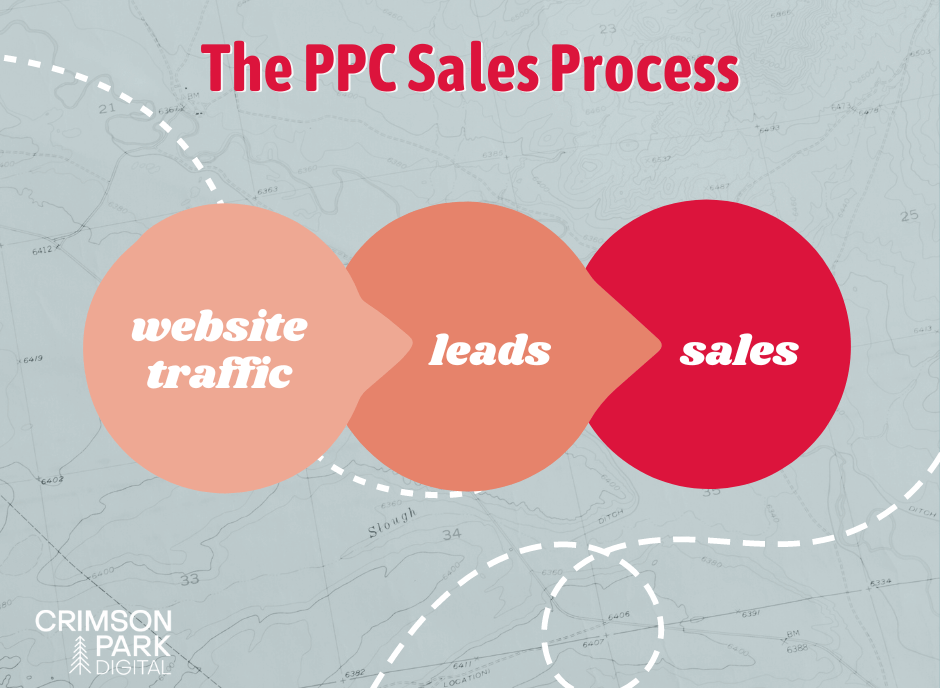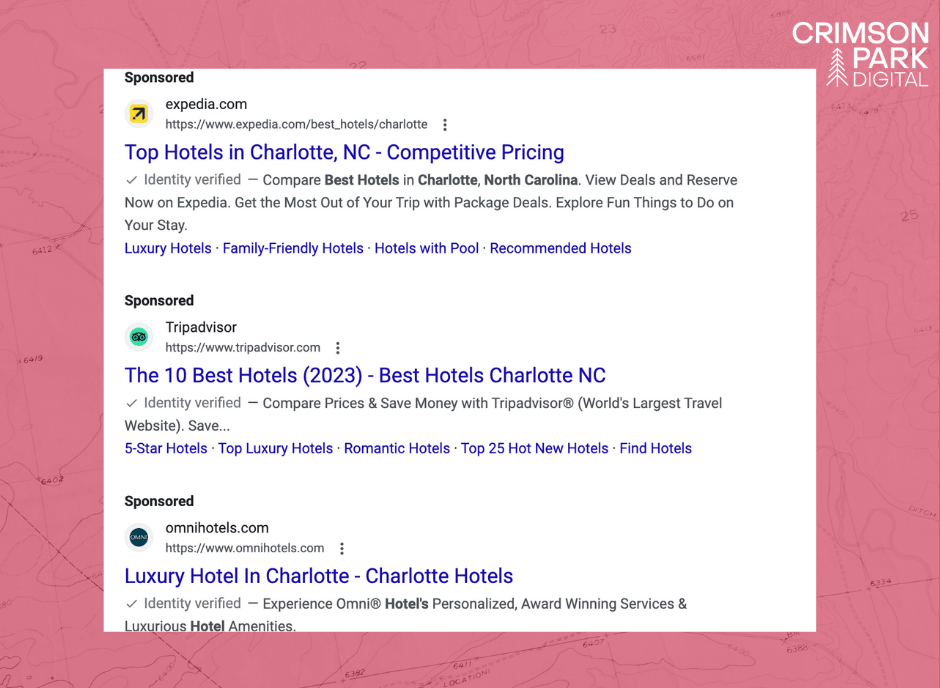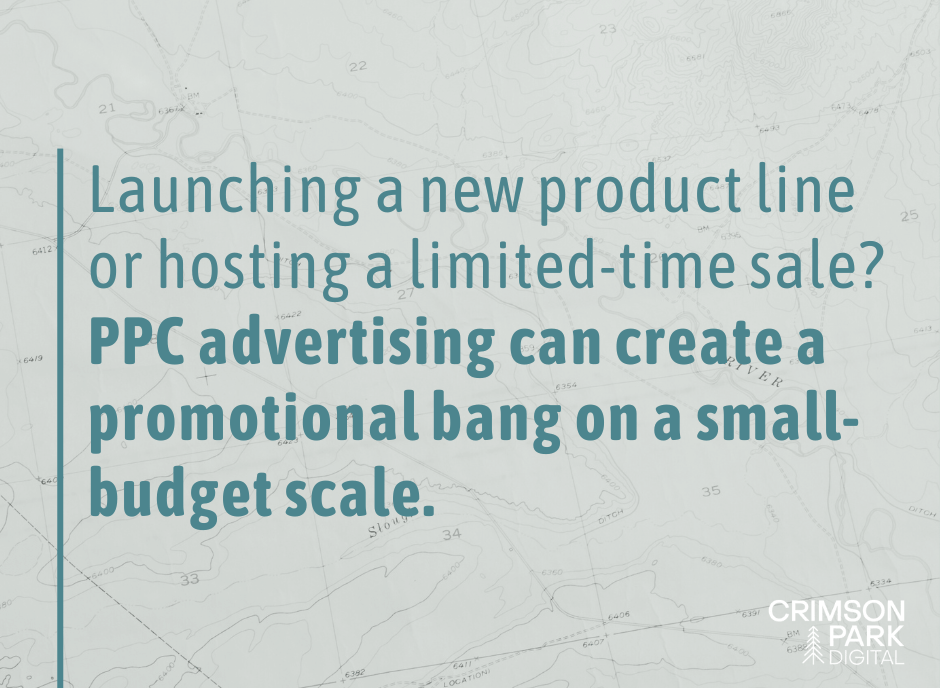PPC Advertising Strategies: Tailored Solutions for Your Business Objectives
Success in pay-per-click (PPC) advertising depends heavily on a tailored game plan. Every day holds about 1.4 billion opportunities for ad clicks on Google alone. To put things in perspective, that’s almost twice the population of China vying for your attention in 24 hours! These are not just abstract impressions, but rather demand opportunities to capture, with PPC strategies tailored specifically for your business objectives.
But don’t just become an indiscriminate click-baiter. Success in PPC is about precision. Translate your business goals into PPC campaigns with foresight, strategy, and a good dose of creativity.
Understanding PPC Campaign Goals
Landing on the most effective PPC advertising strategies for your business requires aligning your business objectives with campaign planning. Let’s break it down.
Prior to initiating a PPC campaign, establishing a clear and measurable goal is absolutely paramount.
The most common PPC advertising goals are:
- Increasing brand awareness
- Increasing lead generation or sales
- Increasing website traffic
Aligning PPC Strategies with Business Objectives
Once you’ve identified your PPC advertising goals, the next crucial step is aligning your strategies with your overarching business objectives. Each goal requires a tailored approach to ensure optimal results.
For instance, if your primary aim is to increase brand awareness, focusing on high-visibility keywords, compelling ad copy, and strategic placement across various platforms can be instrumental.
On the other hand, if your goal is to boost lead generation or sales, targeting specific demographics, employing remarketing tactics, and optimizing landing pages for conversions become essential strategies.
Similarly, for increasing website traffic, emphasizing relevant keywords, creating engaging ad content, and refining ad targeting based on audience behavior can drive meaningful results.
By aligning your PPC strategies closely with your business objectives, you can maximize the effectiveness of your campaigns, minimize wasted spend, and achieve tangible outcomes that positively impact your bottom line.
How PPC Contributes to Revenue Growth
Remarkably, Pay-Per-Click (PPC) campaigning has become a golden ticket to revenue growth for businesses. As the name implies, PPC works on a cost-per-click basis, where advertisers pay every time someone clicks on their ads.
But why is PPC a vital option?
Being at the forefront of digital advertising, PPC propels businesses to obtain wider audience reach and increased visibility online. The value-add of PPC advertising rests on its ability to drive substantial traffic to your website, thus increasing the likelihood of conversions.
Concrete leads are subsequently generated, setting your business on the final stage to accomplish sales.

This progression – traffic, leads, sales – paints a prolific picture of how PPC can bolster revenue growth.
A carefully planned, well-executed PPC campaign, in coherence with your business objectives, is a prerequisite to harvesting these benefits.
Optimizing Your PPC Campaigns for Maximum ROI
Diving deeper into the realm of PPC, the key strategy lies in optimization. Aiming to maximize your return on investment (ROI), well-optimized PPC campaigns can unearth remarkable results you’re after.
Google’s Quality Score, an assessment of the quality and relevance of both your keywords and PPC ads, is the driving force toward cost-effective campaigns. It directly influences the cost per click (CPC) you will be charged. Keeping an eagle eye on improving your Quality Score can certainly help in reducing your expenditure.
Another propelling parameter for maximum returns is landing page optimization. Landing pages should not only resonate with the ad clicked, but also facilitate easy conversions for the visitors. This involves including a straightforward conversion process, engaging content, and a seamless user interface.
Having this turn of mind reflects on refining your PPC campaign to yield more value for your business and streamlines your spending with productivity. We all know that a penny saved is a penny earned.
Remember, a dialed-in focus and continuous optimization are the secret ingredients for your PPC campaign’s success.
Using PPC Advertising Strategies to Increase Brand Visibility
Pay-Per-Click advertising is an effective tool to increase your online presence and attract a larger audience. It’s a domain where creativity meets strategy: compelling ads give your brand a substantial digital footprint.
Creating engaging ads isn’t all about design. Your ad copy plays a pivotal role too. Words that evoke emotion drive traffic to your website or landing page. An iconic headline coupled with a punchy description can turn prospects into customers.

PPC ads are versatile, showing up across search engine results, partner websites, and social media platforms. This omnipresence ensures your brand is visible across the web.
Moreover, with PPC, you can target specific demographics, ensuring your ad reaches the audience you want.
Leveraging PPC Campaigns for Product Promotion
PPC advertising is a game-changing strategy when introducing new products or exclusive deals. A well-crafted PPC campaign generates buzz, ensuring your product or offer stands out.
One successful campaign example comes from the tech industry: when Apple launched the iPhone X, they used PPC advertising to make the product release a blockbuster event. The campaign included keyword targeting and captivating video ads, effectively churning anticipation into sales.
PPC campaigns aren’t only for big players. Small businesses and startups can leverage PPC advertising too. Launching a new product line or hosting a limited-time sale? PPC advertising can create a promotional bang on a small-budget scale.
The myriad of PPC platforms offers versatility in ad format options. Search ads, display ads, shopping ads, video ads – you have lots to choose from! Choose the one that fits your product and audience best, and watch your promotion make waves.

Charting Your PPC Journey: Making Sense of Tailored Solutions
Implementing PPC strategies targeted towards your business aims can yield pronounced results. From understanding your audience to constant A/B testing and monitoring your keywords, each step matters.
Leveraging these tactics is an ongoing journey, not a one-time task. Remember, consistent effort pays off, making your business more visible, competitive, and profitable in the digital landscape.
Our team of digital marketing experts can help develop and execute PPC advertising strategies with results that align with the objectives of your business. With services that include keyword research, account set-up, campaign structure strategy, ad copywriting, A/B testing, audience segmentation, conversion tracking, and LP optimization, we have your PPC ads covered.
Frequently Asked Questions
What is the best approach for PPC campaigns?
The optimal PPC campaign approach involves aligning strategies with business objectives, starting with clear goal definition. Rigorous keyword research, compelling ad copy, and effective landing page design are paramount. Precise audience targeting, continuous optimization, and vigilant monitoring of campaign metrics drive success. Adapting to industry trends and platform updates ensures relevance. Ultimately, the best approach consistently aligns PPC efforts with broader business goals while remaining agile in response to market dynamics.
What are negative keywords in PPC advertising?
Negative keywords in PPC advertising are terms that advertisers exclude from their campaigns to prevent their ads from being displayed to irrelevant audiences. By specifying negative keywords, advertisers can refine targeting and ensure that their ads appear only to users who are more likely to engage or convert. This helps optimize ad spend and improve the overall effectiveness of PPC campaigns.